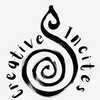But the real reason, in the words of my wise, wise sister, is that "the perfect is the enemy of the good." Bear in mind that this truism comes from a woman who is both an accomplished fine artist as well as a musician, and who also regularly uses excellent words like "bailiwick" and "schaudenfraude." So listen up.
A few months ago I gave a copy of my manuscript to a trusted friend for feedback. And the feedback she gave me was helpful, honest, and constructive. She showed me where the "seams" showed, what rang true and what didn't. I was grateful. And stymied about how to proceed.
Perhaps I had to let the criticism percolate for awhile. Perhaps I needed the down time away from the writing, so I could release my attachment to some of the sections -- which had doubtless taken on, as writer Annie Dillard calls it, the "ring of inevitability" from being re-read so many times. I first started this book in 1998, so some of it's been read a bazillion-gazillion times. I'm no mathematician, but that's a lot of times.
Over and over again, I have to learn that engagement with the process over time is what matters. Over and over again, I have to learn that some writing is going to be dreadful the first time around, and that a finished book that is less than perfect is better than no book at all. I teach my sixth grade writing students about this all the time: perfectionism is the enemy, at least when you're generating new creative material. But that's the thing about the creative process: you get to learn about it a whole buncha times. It's the gift that keeps on giving.
Perhaps I should finally make what I've been thinking about making for years: a thinking cap, but one for creative thinking only. It should have purple on it, and pom-poms, and some kind of sproingy things that wiggle around a lot and remind me that when I'm working on The Book, I'm really only playing on paper. It should be ridiculous and aerodynamic and totally in my bailiwick. It should be...perfect.

 RSS Feed
RSS Feed
